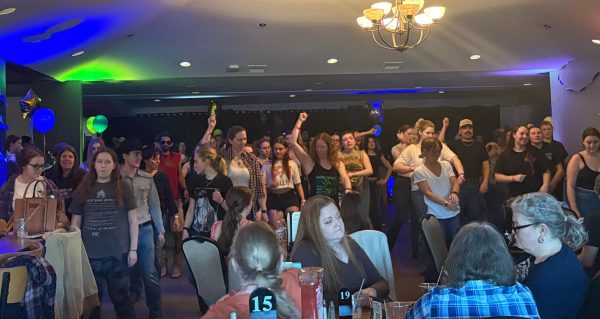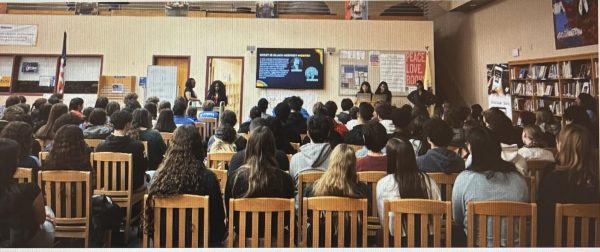Textbooks Going Digital?
The traditional thick textbooks that students have lugged around for generations seem to be disappearing from schools around the country. In most cases, they are being replaced with online textbooks.
This has brought up a question: Should schools bother providing in-school textbooks, or would it be more convenient to have them online?
In education, textbooks are an interesting topic that brings up many pros and cons.
In-school textbooks, published on paper and binded with covers, are more expensive and less environmentally friendly and students cannot use them at home most of the time. Still, such textbooks tend to make it easier for students to retain information.
In contrast, online textbooks are more convenient for students. One drawback, though, is that students can also copy and paste information, which will not enable them to retain information as easily.
Hard-copy work in general is often more preferred than using online material.
“I feel that it is important to have a textbook of some sort,” said Social Studies Teacher Laura Slane. “I like to use a textbook in class, depending on the content that I am teaching. I think the use of the textbook is nice for homework assignments or for some of the earliest history that I will be teaching.”
Obviously, with different classes, the need for a textbook will always differ, especially between teachers. For classes like History, students will most likely need a textbook to help them develop historical knowledge.
In other classes, such as English Language Arts, textbooks are not always a necessary resource.
“For English Language Arts, I feel strongly that students do best with a hard-copy material like a novel, short story, or article in their hands versus reading that same material on a screen,” said English Teacher Kristen Chiara. “However, I don’t think we need textbooks to accomplish that.”
English is one of those subjects where textbooks are not as desired as in other subjects. There are plenty of other alternatives to use instead of textbooks – especially novels and nonfiction books – which could be more efficient for students, Chiara said.
Across academic subjects, the need for paper resources, electronic resources and textbooks can differ wildly, especially between teachers.
“I personally feel that a text, in any sense (whether a textBOOK or any textual resource) is just a resource to aid in the learning process,” Chemistry Teacher Elizabeth Nicolosi wrote in an email. “I do not think it is important that the resources MUST be textbooks. I think resources can take on many different forms, and teachers should have the freedom to use those resources as they deem appropriate for the educational process.”
Using multiple resources for learning helps the creative process for both teachers and students. Variation can help students better study the subject in its entirety when they have multiple resources. Variety will keep students significantly more engaged.





